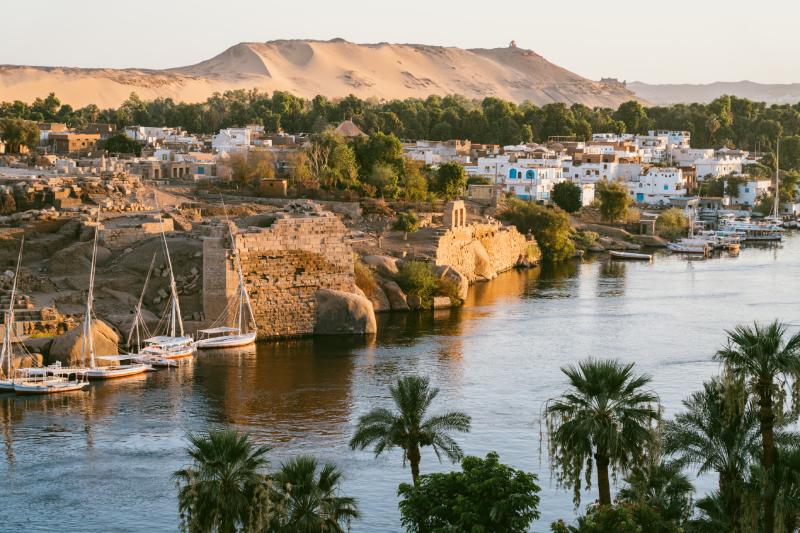
Aswan City, located along the Nile River in southern Egypt, is where history, culture, and natural beauty meet. Known for its stunning landscapes and peaceful atmosphere, Aswan offers a serene escape from Egypt’s busy cities. It has long been a key trading hub and cultural gateway to Africa, connecting civilizations for centuries. The city boasts a unique mix of ancient temples, vibrant markets, and Nubian heritage. From exploring historic ruins to cruising the Nile or visiting local villages, Aswan promises a rich and memorable travel experience. Its charm lies in the harmony of past and present, nature and culture.
Aswan City, in southern Egypt along the Nile’s east bank, enjoys a warm climate year-round due to its location near the Tropic of Cancer. About 870 km south of Cairo, it is the capital of Aswan Governorate. Positioned at the Nile’s first cataract, Aswan served as a natural boundary between Egypt and Nubia, playing a key role in trade and military routes. Its desert surroundings add to its scenic appeal. The city is accessible by road, rail, air via Aswan International Airport, and through Nile cruises from Luxor, offering travelers various ways to experience its rich history and striking landscapes.

Aswan City has played a pivotal role in Egypt's history due to its strategic location. It served as a military and trade outpost during the Pharaonic era, linking Egypt to Africa. The city's history dates back to ancient times, with evidence of settlements from the Early Dynastic Period.
One of the most notable historical aspects of Aswan is its quarries, which provided granite for many of Egypt’s iconic structures, including pyramids and obelisks. The famous Unfinished Obelisk, found in Aswan, sheds light on ancient stone-cutting techniques and the city's contribution to Egypt's architectural marvels.
Throughout the centuries, Aswan has witnessed the influence of various civilizations, including the Romans and the British. Each era left its mark on the city, enriching its cultural tapestry. Today, visitors can explore a myriad of historical sites, from Pharaonic temples to colonial-era buildings, each narrating a unique story of Aswan's past.
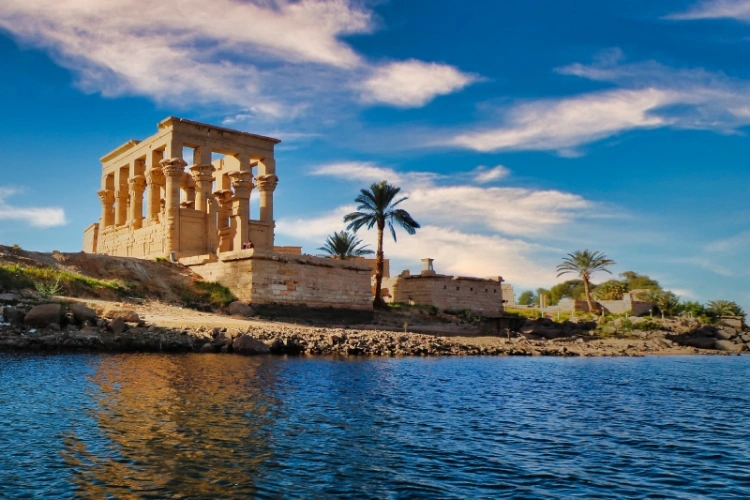
Aswan City boasts a variety of attractions that appeal to different interests. Here are some of the top sites to explore:
Philae Temple, located on Agilkia Island near Aswan, is dedicated to the goddess Isis and is renowned for its beautiful reliefs and sacred significance. Originally on Philae Island, it was relocated in the 1960s to save it from flooding caused by the Aswan High Dam, showcasing an engineering triumph.

Aswan High Dam, completed in 1970, is a monumental engineering project that controls the Nile’s annual flooding, provides water storage for irrigation, and generates hydroelectric power. It created Lake Nasser, one of the world’s largest artificial lakes, and symbolizes Egypt’s modernization efforts.

The Nubian Museum in Aswan highlights the rich heritage of the Nubian people, showcasing over 3,000 artifacts, including statues, tools, and jewelry. Opened in 1997, it preserves the history, culture, and traditions of Nubia, especially following the displacement caused by the Aswan High Dam.
Elephantine Island, located in the Nile at Aswan, is rich in history with ancient ruins, including temples to Khnum and Satet. It also houses the Aswan Museum and a Nubian village. Once a major trading post, the island offers a unique blend of archaeology, culture, and scenic Nile views.
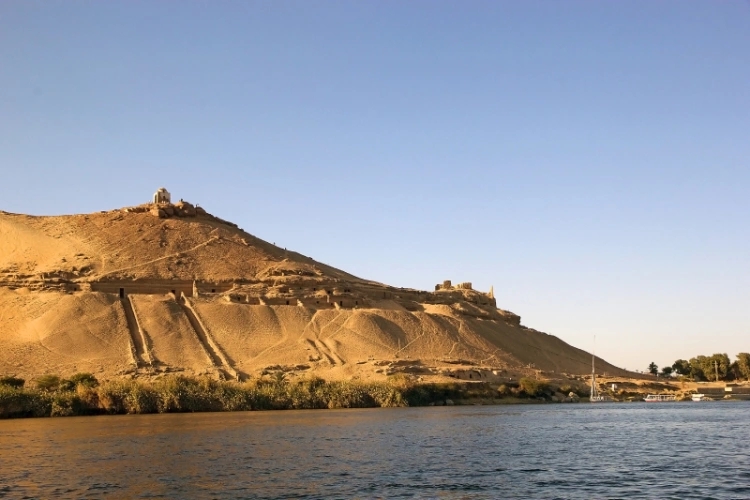
The Unfinished Obelisk, located in Aswan’s ancient granite quarries, is the largest known obelisk ever attempted. Likely commissioned by Queen Hatshepsut, it cracked during carving and was abandoned, providing rare insights into ancient Egyptian stone-cutting and construction techniques.
Each of these attractions provides a unique perspective on the city, blending natural beauty with historical intrigue. Whether exploring ancient temples or marveling at modern achievements, Aswan City offers a captivating journey through time.
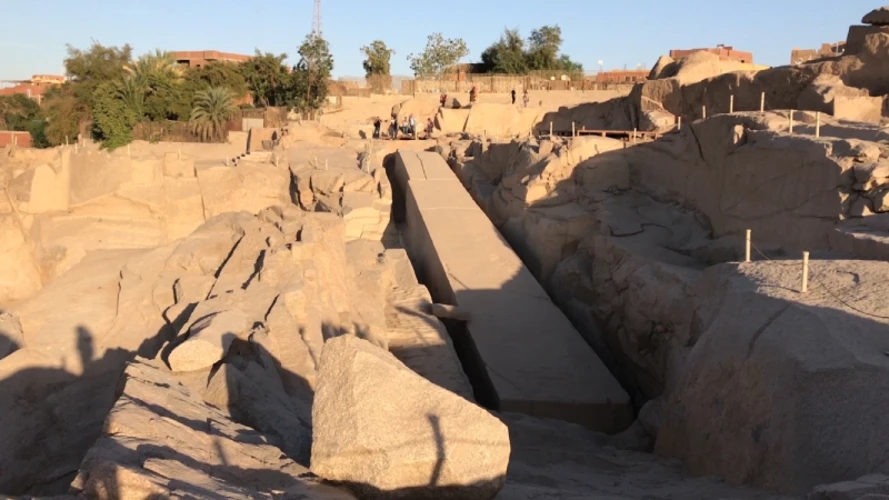
Aswan City provides numerous unique experiences that are sure to create lasting memories for travelers. Here are a few not-to-miss adventures, perfect for those looking to explore through Egypt Tours:
1. Nile River Felucca Ride: Experience the timeless beauty of the Nile River on a traditional felucca boat. These peaceful sails offer stunning views of Aswan's skyline and surrounding landscapes.

2. Visit to a Nubian Village: Engage with the local Nubian community, learn about their customs, and enjoy traditional Nubian music and dance. This cultural immersion is both educational and enjoyable.
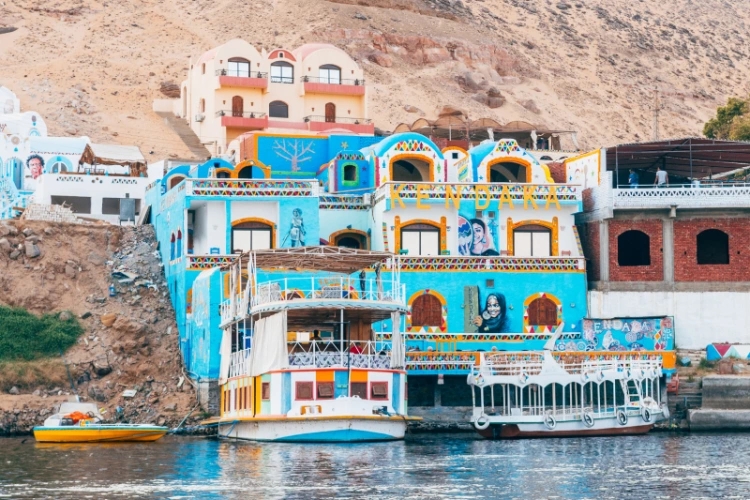
3. St. Simeon Monastery: Explore the ruins of this ancient monastery located in the desert. The site offers a peaceful retreat and a glimpse into the spiritual history of the region.
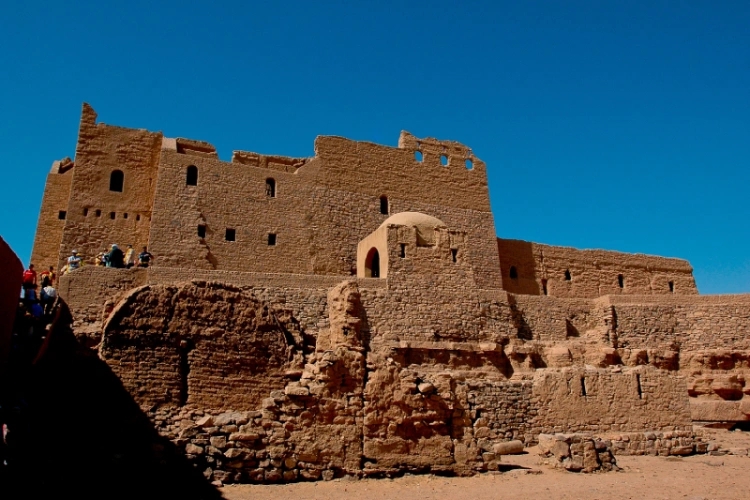
4. Camel Ride Through the Desert: For a truly authentic experience, take a camel ride through the Sahara Desert. The journey offers breathtaking views and a sense of adventure as you traverse the sandy dunes.
These experiences offer a deeper connection to Aswan's culture and natural beauty, providing a well-rounded travel itinerary for any visitor.

Dining in Aswan City is a delightful experience, offering a blend of Egyptian and Nubian cuisine. The city's culinary scene is characterized by fresh ingredients, bold flavors, and time-honored recipes, providing a taste of the region's rich gastronomic heritage.
Traditional Dishes: Some must-try dishes include Ful Medames, a savory fava bean stew, and Koshari, a popular Egyptian street food made with rice, lentils, and pasta. These dishes are often seasoned with fragrant spices, reflecting the region's culinary diversity.
Nubian Cuisine: Nubian meals are also a highlight, featuring dishes such as Aswan-style fish and Dukka, a spice blend used as a dip for bread. These flavors offer an authentic taste of Nubian culture and are a favorite among locals and tourists alike.
Dining Options: From bustling markets to elegant restaurants, Aswan offers a variety of dining settings to suit different tastes. Visitors can enjoy meals at riverside cafes, savor local delicacies in traditional eateries, or indulge in a fine dining experience overlooking the Nile.
Whether you're a food enthusiast or a casual diner, the flavors of Aswan City promise to tantalize your taste buds and enrich your travel experience.
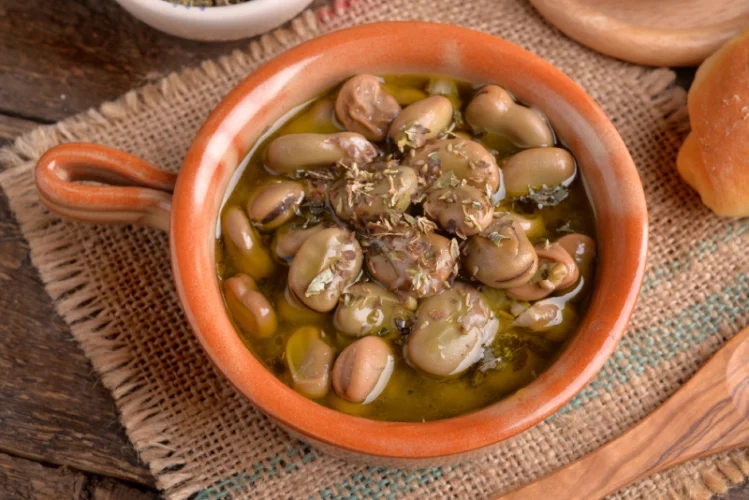
Navigating Aswan City is relatively easy, thanks to its well-connected transportation network. The city's compact size makes it easy to explore on foot, particularly when visiting the central areas and the Nile riverfront. Walking allows visitors to appreciate the city's vibrant atmosphere and discover hidden gems along the way.
For longer distances, taxis and ride-sharing services are readily available, providing a convenient way to travel between attractions. Alternatively, visitors can use the city's efficient public transportation system, which includes buses and minibuses, offering an affordable way to get around.
Boat transportation is also an integral part of getting around Aswan, with ferries and motorboats providing access to the city's islands and attractions along the Nile. Whether by land or water, Aswan's transportation options ensure that visitors can explore the city with ease.
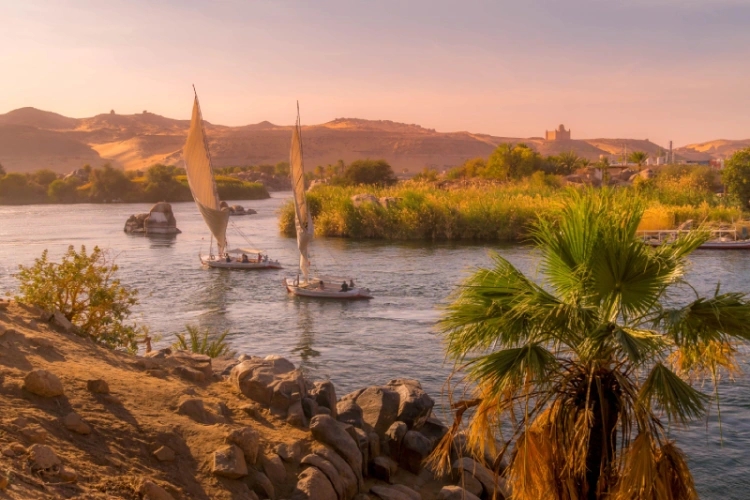
Shopping for souvenirs in Aswan City is an adventure in itself, with numerous markets and shops offering a variety of unique items. These mementos serve as tangible reminders of your time in this captivating city.
Aswan Souk: The bustling Aswan Souk is a treasure trove for souvenir hunters. From spices and perfumes to handmade crafts and textiles, the market offers a wide array of items that reflect the local culture.
Nubian Handicrafts: For truly unique souvenirs, consider purchasing Nubian handicrafts. These include colorful jewelry, pottery, and woven baskets, each crafted with skill and care by local artisans.
Papyrus and Cartouches: Visitors can also find traditional papyrus art and personalized cartouches, which are popular gifts and keepsakes. These items embody the rich history and artistry of Egypt.
Shopping in Aswan not only allows travelers to bring home a piece of their journey but also supports local artisans and the community.

Aswan City offers a range of accommodation options to suit different preferences and budgets. From luxury resorts to charming guesthouses, visitors can find the perfect place to stay while exploring this beautiful city.
Luxury Hotels: For those seeking comfort and elegance, Aswan has several high-end hotels offering exceptional amenities. Properties like the Sofitel Legend Old Cataract, Movenpick Resort Aswan, and the Basma Hotel provide stunning views of the Nile and top-notch services.
Mid-Range Hotels: Travelers looking for a balance between comfort and affordability can choose from various mid-range hotels. These establishments offer comfortable accommodations with modern amenities at reasonable prices, such as the Pyramisa Isis Hotel & Suites and Nile Hotel Aswan.
Budget Stays: Backpackers and budget-conscious travelers will find several hostels and guesthouses offering affordable rates. These options provide a cozy atmosphere and often include communal spaces for socializing with fellow travelers.
Regardless of your choice, staying in Aswan City ensures easy access to its many attractions and a comfortable base for your adventures.
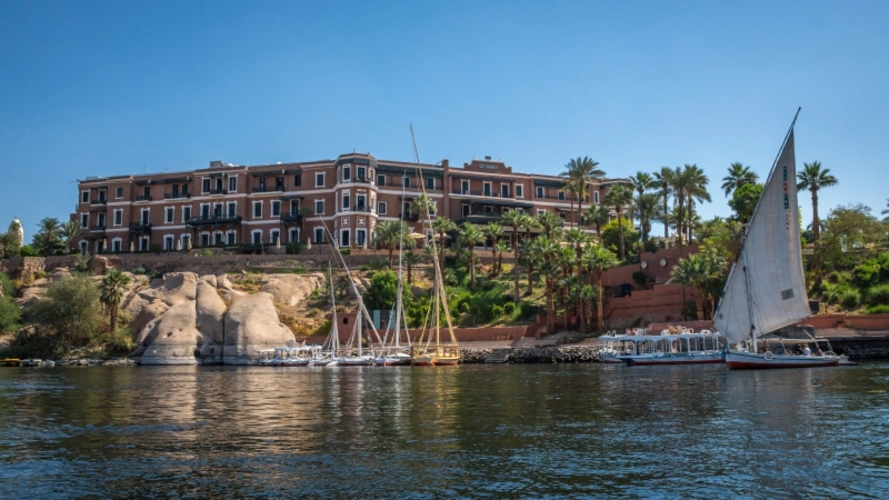
The best time to visit Aswan City is during the cooler months, from October to April. During this period, temperatures are more comfortable, making it ideal for exploring the city's outdoor attractions and enjoying Nile cruises. The mild weather allows travelers to fully immerse themselves in the beauty of Aswan without the discomfort of extreme heat.
From May to September, Aswan experiences high temperatures over 40°C (104°F), making it the off-peak season with fewer crowds and lower accommodation rates. However, Aswan offers year-round attractions, from cultural festivals to historical sites, ensuring a memorable visit anytime.
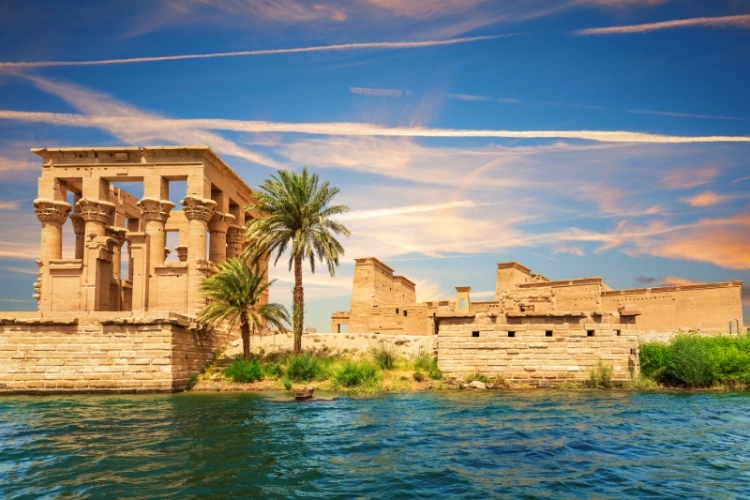
Aswan City, with its rich history, vibrant culture, and stunning landscapes, offers an unparalleled travel experience. From ancient temples to modern engineering marvels, the city's attractions are as diverse as they are captivating. Whether you're exploring its historical sites, indulging in local cuisine, or simply soaking in the beauty of the Nile, Aswan promises unforgettable memories.
As you plan your next adventure, consider adding Aswan City to your itinerary. Immerse yourself in its unique charm and discover the treasures that await in this enchanting destination. For those seeking to explore Egypt's wonders, a journey to Aswan City is a perfect choice.
Q1. What is Aswan famous for?
Aswan is known for its beautiful Nile River scenery, ancient temples like Philae, the Aswan High Dam, Nubian culture, and as a gateway to Abu Simbel.
Q2. When is the best time to visit Aswan?
The best time to visit is from October to April, when temperatures are mild and ideal for sightseeing.
Q3. How can I get to Aswan?
Aswan is accessible by plane (Aswan International Airport), train, bus, and Nile River cruises from Luxor.
Q4. Is Aswan safe for tourists?
Yes, Aswan is considered a safe and welcoming destination for tourists, with a strong security presence in tourist areas.
Q5. What are the must-see attractions in Aswan?
Top attractions include the Philae Temple, Aswan High Dam, Unfinished Obelisk, Nubian Museum, and Elephantine Island.
Q6. Are there Nile cruises available in Aswan?
Yes, many Nile cruises either start or end in Aswan, offering trips to Luxor with stops at key historical sites.
Q7. What kind of accommodations are available in Aswan?
Aswan offers a range of accommodations, from luxury hotels like the Sofitel Old Cataract to mid-range and budget options.
Q8. What local dishes should I try in Aswan?
Try traditional Nubian cuisine, koshari, grilled meats, and fresh Nile fish at local restaurants or Nubian villages.
Q9. Do I need a guide to explore Aswan?
While you can explore on your own, hiring a local guide or booking Egypt tours can enrich your experience with historical insights and local knowledge.
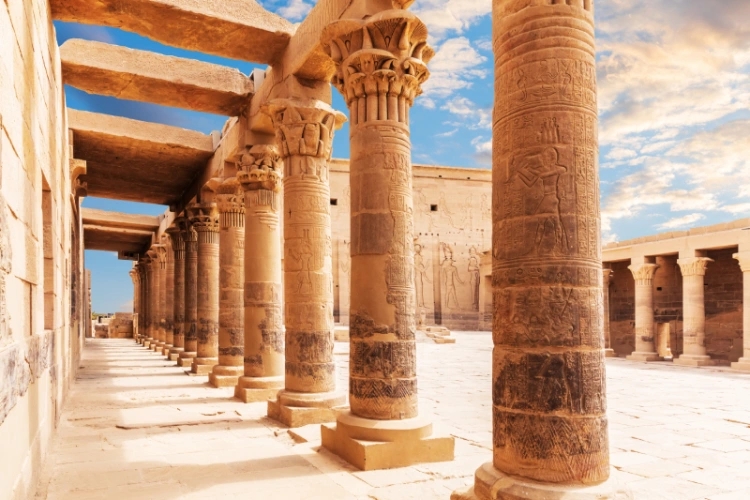

© Copyright 2025 Get Egypt Tour. All rights reserved.